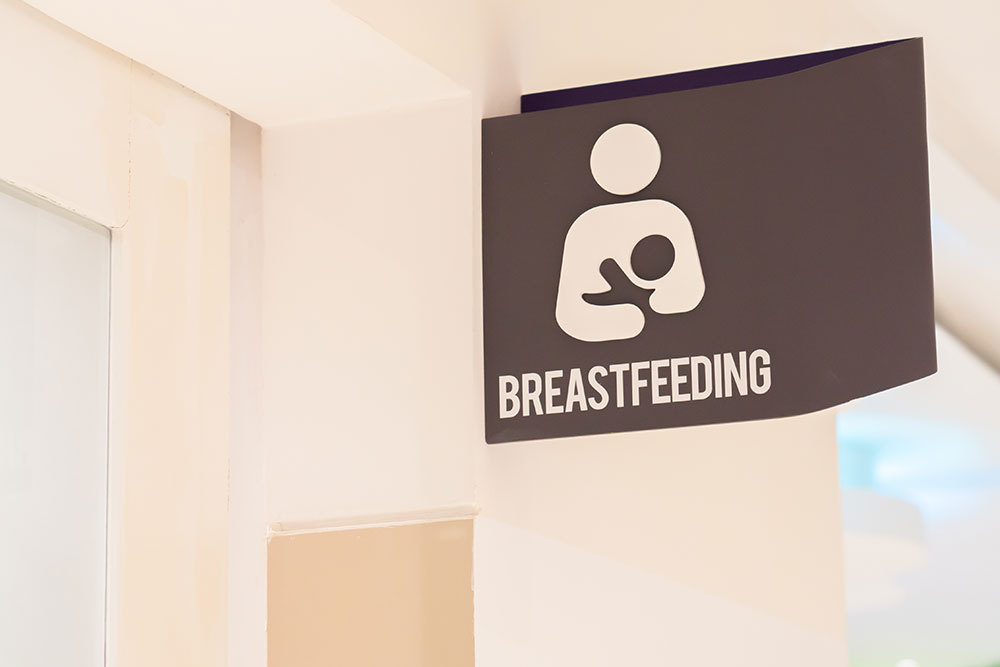The Workplace Is Now More Accommodating for Pregnant and Pumping Parents

While we were busy finding childcare and keeping our kids entertained during winter break, two new parental protection acts were signed into law.
It’s a well-known and widely accepted fact that, for many of us, the days between Dec. 26 and Jan. 1 are a complete blur. Whether you were using up the rest of your PTO, your office was closed, you were chasing your kids around as they soaked up the joys of winter break, or even if you were in the office that week, structure and routines didn’t seem to exist during those seven days. But, this past break something truly amazing happened: The president showed up to work and signed a new spending bill that included two acts to better protect new and expecting parents in the workplace.
On Dec. 29, President Biden signed the $1.7 trillion federal spending bill that lays out how the federal government will be funded in 2023. Spending bills are passed annually (otherwise we face a government shutdown), but oftentimes tucked away amongst all of the budget provisions are additional laws that congress wants to pass at the same time. This year’s bill included the Providing Urgent Maternal Protections (PUMP) for Nursing Mothers Act and the Pregnant Workers Fairness Act, both of which help to level the playing field for pregnant and nursing parents at work.
PUMP for Nursing Mothers Act
Prior to this spending bill, there were federal laws in place to ensure covered employees were offered breaks to pump as needed for one year following the birth of a child. Additionally, employers were required to provide lactating parents with a space to pump “other than a bathroom that is shielded from view and free from intrusion from co-workers and the public.” However, these laws did not apply to employers with fewer than 50 employees if “compliance with the provision would impose an undue hardship” on the business. Also, employers were not required to pay their employees for time spent pumping—meaning lactating parents would have to clock out every time they needed to pump.
With the new PUMP for Nursing Mothers Act, existing protections are still in place, but they have been expanded. First, lactating parents, regardless of whether they are hourly or salaried employees, now get these rights for up to two years after the birth of a child instead of just one year (which aligns with the latest breastfeeding guidance from the American Academy of Pediatrics). Also, if an employee is multitasking (a skill every new parent quickly masters) by working while pumping, then the new law says they need to be compensated for that time. However, there are still exemptions for employers with less than 50 employees as well as for flight crews who are in the air, regardless of how many people the airline they work for employs.
Pregnant Workers Fairness Act
Before the Pregnant Workers Fairness Act, we had the Pregnancy Discrimination Act of 1978 (yes, we’ve been operating under the same law for more than 40 years). This law was written to ensure pregnant employees and applicants were not treated differently from non-pregnant persons—including “hiring, firing, pay, job assignments, promotions, layoffs, training, fringe benefits, and any other terms or conditions of employment.”
The Pregnancy Discrimination Act of 1978 ensured pregnant employees could stay in their roles and continue to work in their positions for as long as they were physically able to. Additionally, while employers were (and still are) required to ensure a safe work environment, this law stated that an employer “has no extra duty to protect pregnant or potentially pregnant employees from dangerous work conditions.” Similarly, employers were not legally required to provide reasonable accommodations for a pregnant employee if they would not provide those same accommodations for another employee with a separate medical condition (meaning, they have to treat a pregnant employee the same way they’d treat an employee undergoing something like cancer treatment).
Despite this law, the American Civil Liberties Union (ACLU) says, “pregnant employees are routinely denied temporary job accommodations they need to have a healthy pregnancy—like schedule changes or a break from heavy lifting—even when co-workers who aren’t pregnant receive such accommodations. Pregnant workers continue to be fired, forced to quit, or put on unpaid leave when they ask their employer for temporary modifications of their job duties so that they can keep working.”
This is where the Pregnant Workers Fairness Act comes in. Under this new law, pregnancy is treated more like a disability is in the Americans with Disabilities Act (and in this case, that’s a good thing). Employers with 15 or more employees will now be required to provide reasonable accommodations (unless the accommodation would cause undue hardship) for qualified pregnant employees—which is any employee (or applicant) who “with or without reasonable accommodation can perform the essential functions of the [job].” Additionally, employers may not deny employment opportunities to someone just because they are pregnant and will need reasonable accommodations to do the job, and they cannot require a pregnant employee to take leave—either paid or unpaid—from their job if a reasonable accommodation can be made.
While this new law may seem pretty similar to the Pregnancy Discrimination Act of 1978, what it does is provide clearer language around providing reasonable accommodation to pregnant workers—whether it’s more frequent bathroom breaks or remote work options. This means even if an employer doesn’t offer accommodation to an employee with a medical condition, that does not excuse them from providing accommodation to a pregnant employee. It truly strengthens pregnant workers’ rights.
The expanded access and compensation requirements included in the PUMP for Nursing Mothers Act became effective as soon as President Biden signed the act into law on Dec. 29, 2022. The effective date for the Pregnant Workers Fairness Act is June 27, 2023.
These changes may seem somewhat minor, but they really are big wins for expecting and nursing parents. Now, if only we could get paid family leave and childcare assistance into one of these bills in the future.








